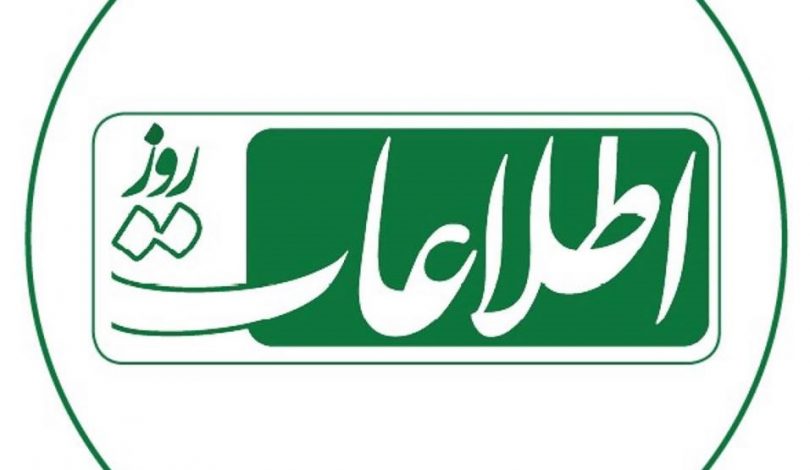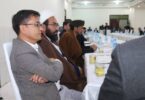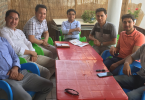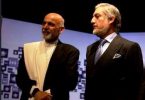By Murtaza Meraj
Despite the security and financial challenges against free media in Afghanistan, 2017 was the best year for Etilaatroz, a Kabul-based newspaper. It was branded in 2017 as a leading media outlet after it published several investigative reports and leaky news exposing corruption and ethnical discrimination in the highest level of the Afghan government, particularly in the President Ashraf Ghani’s office.
On May 23, 2017, the newspaper revealed that President Ghani had allowed a company to buy 143 jeribs (around 57 acres) of governmental land at a very low price: 90% lower than the real price. The paper had unclosed that President Ghani had done this in return for the financial support by the company in 2014 election, particularly during the run-off election. The report generated massive debates on the mass media, social media, and also political circles including legislators. Subsequently, the Afghan parliament halted the sale.
Nearly two months later (July 19, 2017), the paper published another investigative report on some high-profile political families – including the former president, Hamid Karzai – that have control on the government resources. It disclosed how these families have had key roles in committing big corruptions and monopolizing high positions in the government through their networks.
Moreover, on September 16, 2017, Etilaatroz published an exclusive leaked story that proved systematic discriminative efforts in the presidential palace against non-Pashtun ethnicities. The paper had obtained a leaked document from the Administrative Office of the President (AOP). The document that was shared by the deputy chief of monitoring and observation at AOP on an internal Telegram channel, encouraged the promotion of Pashtuns against the other ethnic groups – particularly Tajiks, Hazaras, and Uzbeks – in the presidential palace.
This story was re-shared and promoted massively by the local and international media outlets and generated intense debates not only among the politicians, media activists, and educated people but also among the entire nation. It illustrated that a group of Pashtun ethnic group closest to President Ghani is attempting to marginalize the other ethnic groups.
Ultimately, the chairman of AOP acknowledged the problem and he asked the deputy to resign from his post. In addition, President Ghani, after a storm of criticism and angry comments on the mass media and social media, ordered the attorney general an inquiry about the case.
After this exposure, Etilaatroz came on the top of the print media that attracted several leading international media to write about the newspaper and its editor-in-chief, Zaki Daryabi, who founded the paper in 2012 while he was doing his B.A at Kabul University. As a result, Etilaatroz was profiled by New York Times and The Guardian on the same day. Since that time, some people particularly journalists call Zaki Daryabi: Zaki Radyabi (رَدیابی), means tracker or exposer.
While 2017 was a golden year for Etilaatroz in terms of making a history for itself through its good-quality journalistic work, it was the toughest year for the paper as well. On the one side, the paper’s focus on quality journalism and its subsequent achievements enhanced confidence and hope among its team of 22 – mainly youth – to continue their work more professionally.
But on the other side, as the previous years, it wasn’t able to pay its staff salaries nor the office rent and many other expenses. Besides that, the achievements – according to Daryabi – increased the paper readers’ expectations that subsequently doubled the problems in terms of putting more work pressure on the staff.
Now, the readers are expecting it to publish investigative reports and quality stories every day. Since the budget and capacity of Etilaatroz are very limited, it has been very difficult for the paper to meet all those expectations. But based on Daryabi, the paper has done its best to meet some of the expectations. It has employed two professional reporters, enhanced the quality and quantity of its contents, and doubled the presence of its reporters in the field rather than monitoring the news agencies and work from behind desks.
To sustain its financial needs, the paper increased negotiations with some national and international organization for partnership, focused on developing and modernizing its finance and admin systems, stopped free distribution, focused more on generating revenues through advertisements, subscriptions, and sales, and developed a business plan.
In conclusion, by its quality work in 2017, Etilaatroz decreased the dependency of the national media outlets on the international media and the tendency to pick up their stories. Further, the paper proved that the national media outlets can, even, be the source for the international ones if they focus on quality and work professionally.










Leave a Comment